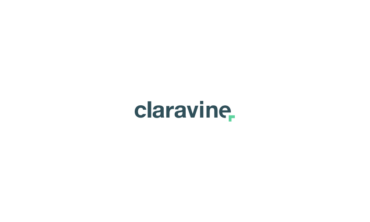No Cookies for You! How Big Brand Advertisers Are Moving Ahead Without Third-Party Cookies and IDFA

New research: Advertisers see the path ahead in the face of privacy changes from Apple and Google
Under increasing regulatory and societal pressure to protect user privacy, Google is phasing out those third-party cookies that follow you around the web, and Apple has ended device-level identification (IDFA). These capabilities have been the foundation of digital advertising for years, and advertisers are now on the clock to rethink their campaign strategies and marketing stack.
Tools like third-party cookies and IDFA have given modern marketers targeting and messaging power that long-ago ad professionals like Don Draper from Mad Men could only dream about:
- Send target ads to users who are in specific locations like Miami International Airport, the Staples Center, or an auto dealership
- Show an ad based on someone’s general browsing history and interests
- Track how users interact with apps for better ad targeting and messaging
- Track shopping behaviors and preferences across the web
Without third-party cookies and IDFA, does this mean advertisers have been time warped back into a primitive marketing age when the most effective strategies were a prime-time TV spot and a catchy jingle?
According to new research, not quite.
Big brands and smart digital marketers have plans to overcome these changes by adopting new approaches and refining existing ones.
Claravine, a leader in marketing data integrity, wanted to learn more about how big-brand advertisers are moving forward in a cookieless and IDFA-free world. Claravine commissioned an independent research agency to survey 400 marketing and advertising leaders about the path ahead. The margin of error for this study is +/- 4.9% at the 95% confidence level.
A random sample was taken using Lucid, a trusted global sample provider.
Here are a few key insights from our study:
INSIGHTS ABOUT REACTIONS TO PRIVACY CHANGES
Growing brands are being more proactive. Growing brands are 2x more likely than stagnant/declining brands to already have a plan to adapt to the Google and Apple changes
Advertisers were more surprised by Google’s changes than by Apple’s. Who was caught by surprise by the privacy announcements of Google and Apple?
- 25% of advertisers were surprised by the Apple announcement
- 56% of advertisers were surprised by the Google announcement
- 20% weren’t surprised by either announcement
Advertisers hold roughly split views about how Apple’s changes will affect their business. 30% of advertisers say the end of device-level IDs will negatively impact their business but 37% say it will be a positive impact
Advertisers hold split views about how Google’s changes will affect their business. 35% of advertisers say the deprecation of third-party cookies will negatively impact their business but 36% say it will be a positive impact
These privacy changes have the attention of advertisers. 74% of advertisers say they have been dedicating a significant amount of time and resources to adapt to the changes
Advertisers will be pulling marketing in house. 75% of client-side advertisers expect to bring more marketing in-house after these changes
Marketing teams are taking the lead to adapt. Teams most involved in planning to adapt:
- Marketing
- Advertising
- Sales
Most executive teams aren’t involved in planning a response. 39% of advertisers say their executive team is involved in preparing a response to these privacy changes
Legal and product development teams aren’t in the mix. Teams least involved in planning to adapt:
- Legal
- Product development
- Human resources
Tracking campaign performance will suffer. 63% of advertisers say these privacy changes will negatively impact their global view of campaign performance
These privacy changes will usher in significant budget allocation changes. The top ways advertisers expect these privacy changes to change their entire business:
- Changes to budget allocations
- Changes to channel/distribution strategy
- Changes to privacy policy
- Changes to revenue streams
- Changes to IT infrastructure
INSIGHTS ABOUT DATA
Metadata will play a larger role for nearly half of advertisers. 42% of advertisers say user metadata will play a vital new role once cookies and device ID are gone
Half of advertisers don’t have the new data taxonomy they’ll need. 53% of advertisers say having a marketing data taxonomy will be vital after the changes, but only about half of companies currently have one
Advertisers will own, not buy data. After the change, more advertisers say they will own data (86%) than say they will buy data (17%)
Campaigns are shifting from device-level targeting to group-level. 81% of advertisers are shifting focus from device-level marketing to group-level marketing
INSIGHTS ABOUT PRIVACY
Advertisers agree on a greater need for privacy. 84% of advertisers say Apple and Google are right to curb access to device-level and third-party data
Even advertisers say personalized ads are too invasive. 72% of advertisers say device-level advertising is generally too invasive
Advertisers say digital advertising violates consumer privacy. 70% of advertisers say much of digital advertising today violates privacy of consumers
Advertisers themselves don’t like to personally get invasive ads. 55% of advertisers themselves are bothered by the invasive nature of the ads they get
Advertisers support a US GDPR. 74% of advertisers say that a US version of GDPR would be positive for the industry
Medical data tops the list of “off limit” data collection. What types of user data should be “off limits” to advertisers?
- Medical information
- Private conversations
- Political/voting data
- Citizenship data
- Genetic markers
Zip code, app usage, and Demographic data are “fair game” for marketers. What types of user data are “fair game” for advertisers?
- Zip code
- App usage
- Demographics
- Music preferences
- Mobile device type usage
Most advertisers believe phones eavesdrop. 62% of advertisers think phones eavesdrop on our conversations
Many advertisers avoid owning personal digital assistants like Siri. 44% of advertisers avoid personal digital assistants like Siri and Alexa
One third of ad professionals don’t trust big tech with their personal data. 34% of advertisers don’t trust big tech with their personal data
Some ad professionals wouldn’t trust their personal data to their own employer. 21% of advertising leaders wouldn’t trust their own personal data to the company they work for.



